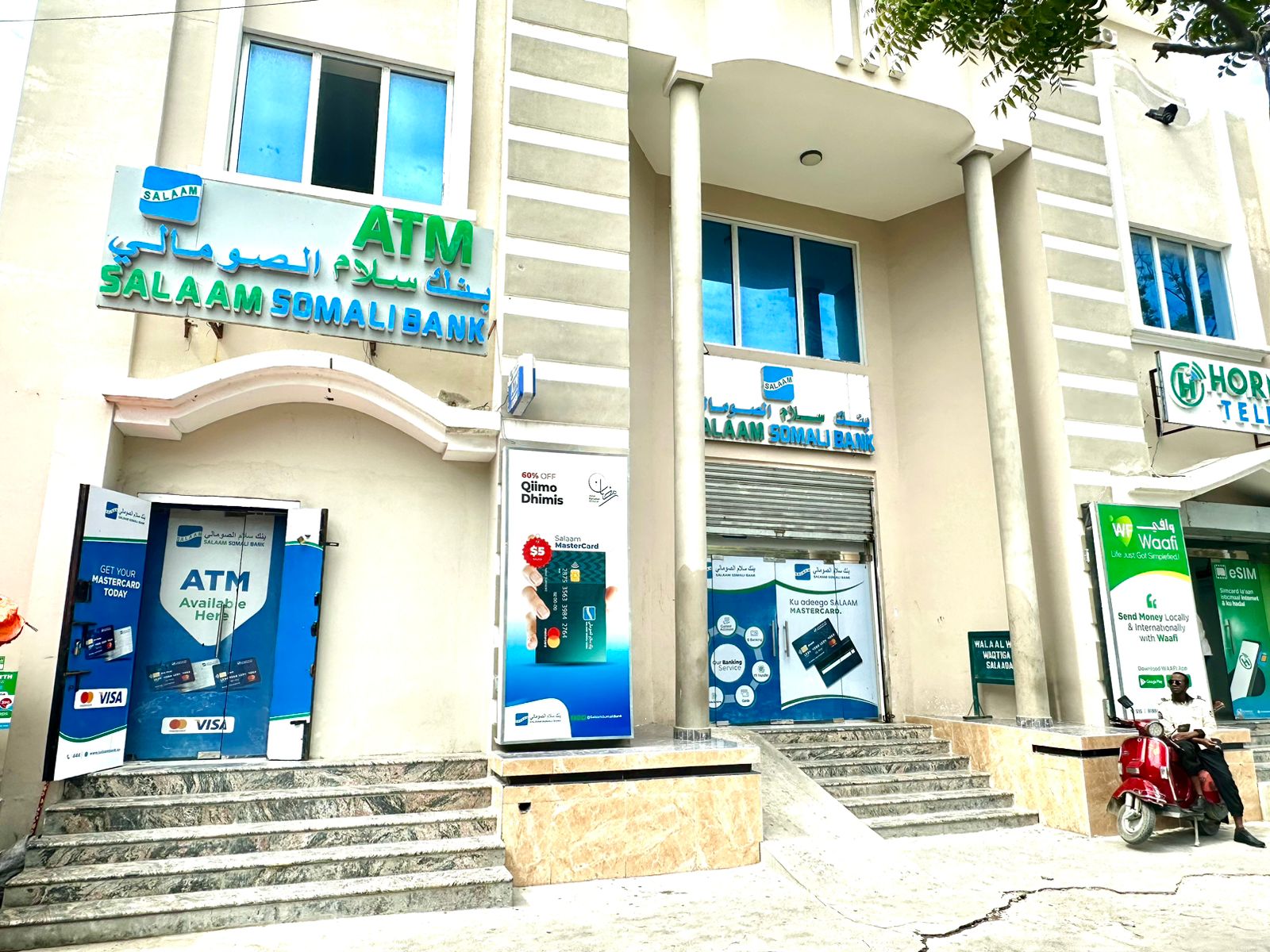advertisement
Driving Somalia’s Financial Inclusion: Salaam Somali Bank’s Story

When you are your country’s oldest and largest private financial institution and have a market share of nearly half the banked population, and growing, then you must be doing something right. This is the story of Salaam Somali Bank. So what’s their secret?
Shuayb Haji-Nur Mohamed, CEO of Salaam Somali Bank, says the answer to that question is multifaceted.
“The customer is always the king,” he emphasizes, “and you must always ensure that your king is constantly happy. For us, that means being at the forefront of innovation, providing our existing and prospective customers with new solutions to their everyday financial needs.”
advertisement
The bank’s roots are intertwined with the tumultuous history of Somalia. It emerged as the first commercial bank after the collapse of formal banking structures during the Civil War, providing a lifeline to a population that had relied on informal financial networks.
Small office, big dreams
From a small office but with the big dream of ensuring the Somali people are not left behind in the race to financial inclusion, Salaam Somali Bank operates across Somalia, the largest banking network, with over 55 branches scattered across Somalia, South Central Somalia, Puntland and Somaliland yet Shuayb remains mindful of the long road ahead.
advertisement
“While we are proud of this, we are aware that the road is still long to achieve our ultimate dream for the Somali people.”
The bank has been at the forefront of offering innovative solutions to ensure that Somalis and their businesses have access to financial solutions. In 2011, it introduced a free micro-finance program, followed by the implementation of an e-payroll system two years later. These offerings complement a wide range of financial services, including corporate, community, business, and personal investment banking options, as well as wealth and investment management and trade finance.
Shuayb also sees a huge opportunity in Islamic Banking, which remains very small despite witnessing tremendous growth over the last decade.
advertisement
The Islamic banking industry stood at US$ 4.1 trillion as of 2022 but is expected to exceed US$ 5.4 trillion by 2027 as global economies recover from the effects of COVID-19.
“Islamic banking originated in Egypt in 1963 so the continent should be way ahead of the rest of the world, but that is not the case. The good news is the room for growth is immense,” Shuayb says.
“We have additionally developed products that align with the pillars of Islamic financing including Mudharabah (profit sharing contract), Murabahah (cost-plus financing), and Musharakah (joint partnership). We are increasingly talking to our customers and partners to ensure we give them quality services that align with their preferences,” he said, adding that the Somali Diaspora is also not left out.
The bank offers services that enable customers to transfer funds and the maintenance of their bank accounts in Somalia. Each customer benefits from a dedicated diaspora account manager, emphasizing personalized service. This dedication to service and maintaining the highest standards in its operations saw the bank become one of the first businesses in Somalia to get ISO Certified -9001:2015 in 2022.
Responsible partnerships
Further setting itself apart, Salaam Somali Bank established an independent charitable arm known as the Hormuud Salaam Foundation in 2013. This commitment to giving back to the community underscores the bank’s dedication to social responsibility.
“Empowering communities is our mission, and the Hormuud Salaam Foundation is our dedicated vessel for making a positive impact,” adds Shuayb.
Shuayb also says that the Bank’s journey to success is on a good trajectory.
“Our story of customer-centricity, innovation, and a commitment to serving both the community and the nation with a comprehensive range of financial services and a heart dedicated to giving back is only getting started,” he adds.
Looking into the future, Shuayb believes there is a huge opportunity for the bank and other Somali businesses to grow beyond borders should the process to join the East African Community materializes.
“Joining the EAC could open doors to enhanced regional trade, access to a broader consumer base, and a more favorable business environment,” he concludes.